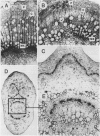Abstract
The distribution of 14C from xylem-borne [14C]glutamine, the major nitrogen compound moving in xylem sap of cottonwood (Populus deltoides Bartr. ex Marsh), was followed in rapidly growing shoots with a combination of autoradiographic, microautoradiographic, and radioassay techniques. Autoradiography and 14C analyses of tissues showed that xylem-borne glutamine did not move with the transpiration stream into mature leaves. Instead, most of it was transferred from xylem to phloem in the upper stem and then translocated to young developing tissues. Microautoradiography showed that metaxylem parenchyma, secondary xylem parenchyma, and rays were the major areas of uptake from xylem vessels in the stem. Accumulation in phloem (high 14C concentrations in sieve tubes) took place in internodes subtending recently mature leaves. Little 14C from xylem-borne glutamine was found in phloem of mature leaves, which indicates restricted retransport of glutamine that did enter the leaf. In the primary tissues of the upper stem, most 14C was found in the phloem. Cottonwood stems have an efficient uptake and transfer system that enhances glutamine movement to developing tissues of the upper stem.
Full text
PDF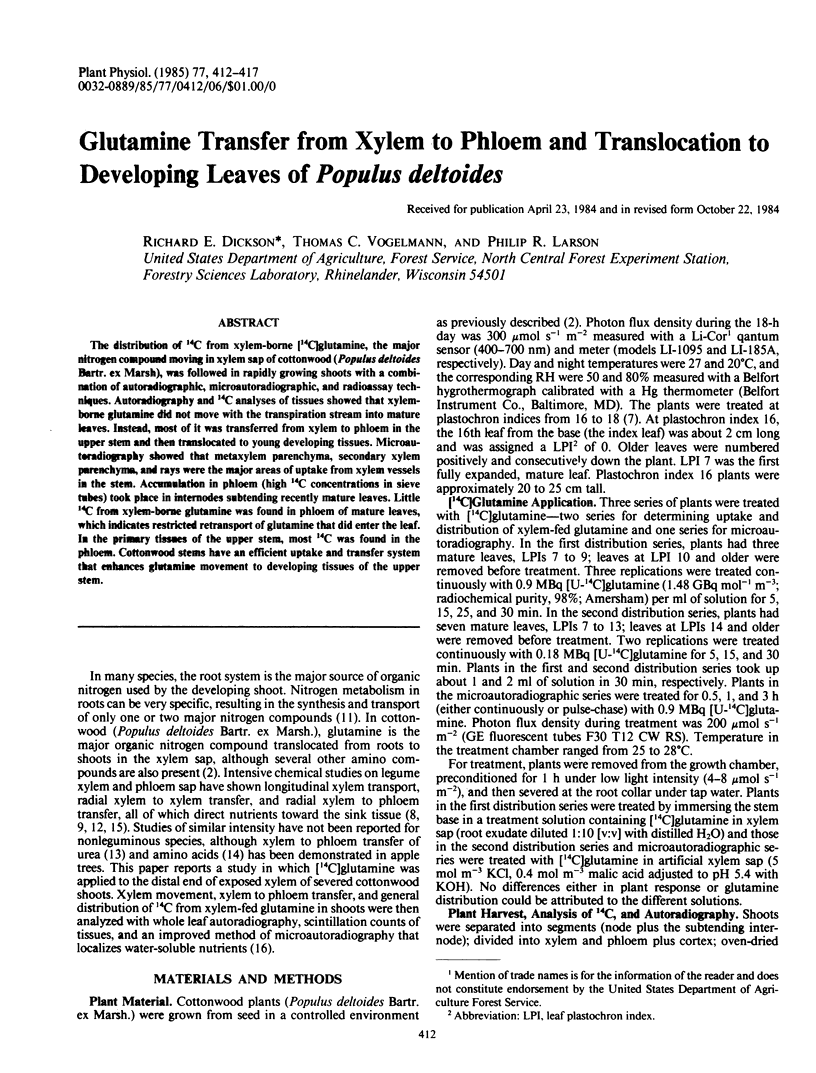
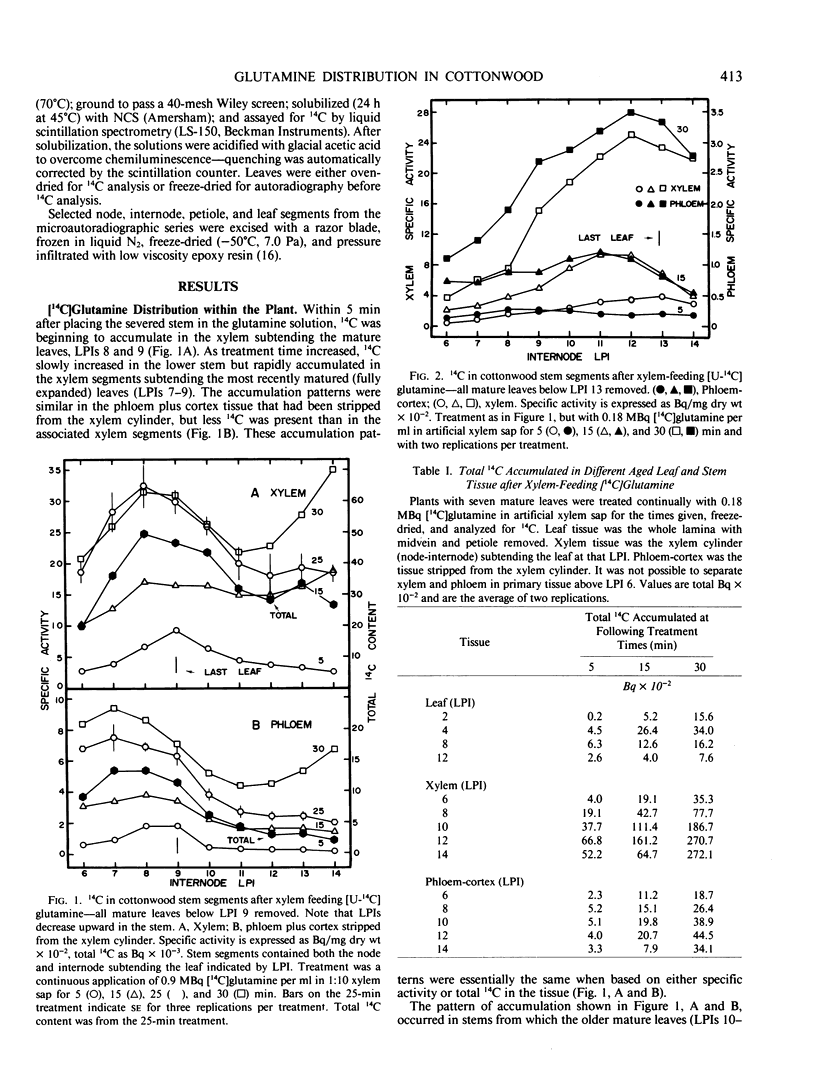
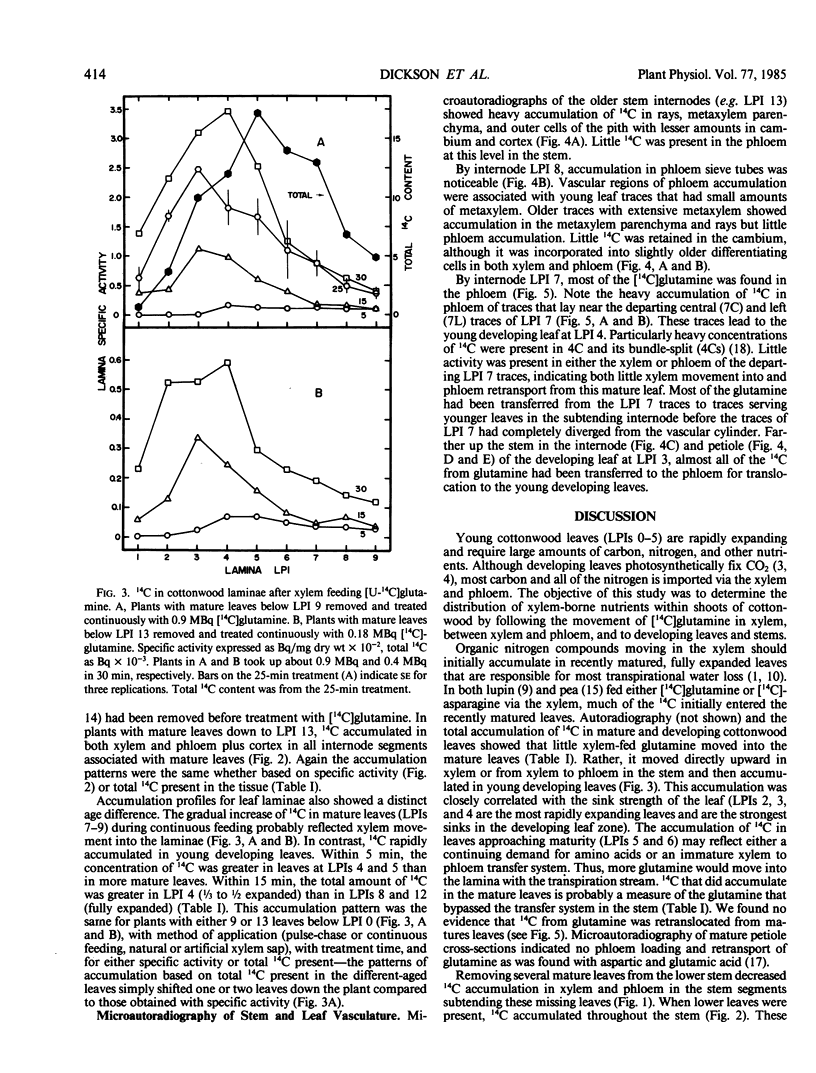
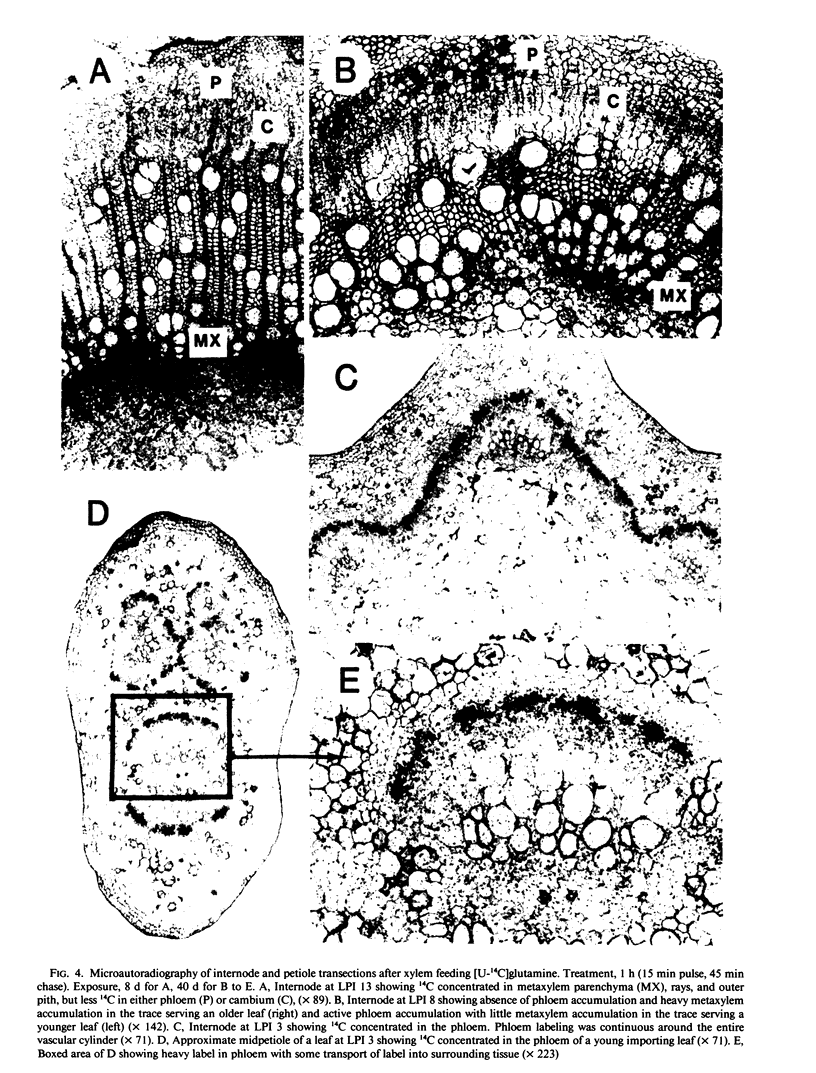
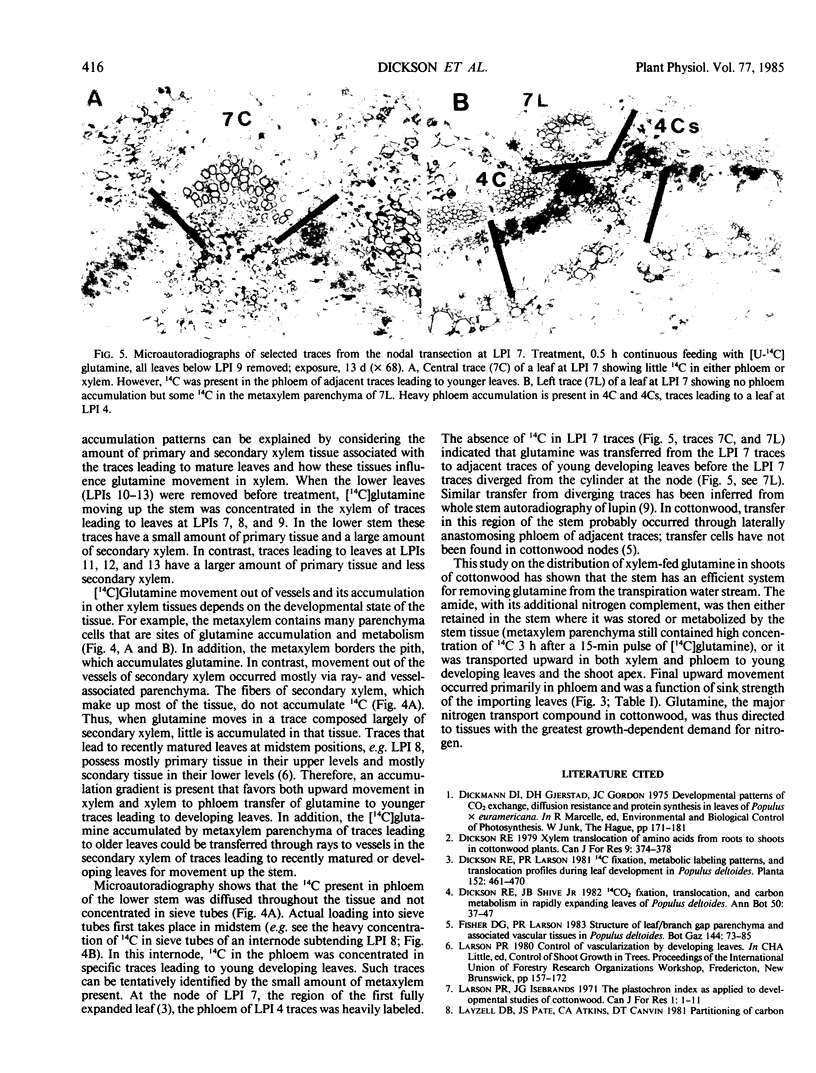

Images in this article
Selected References
These references are in PubMed. This may not be the complete list of references from this article.
- Layzell D. B., Pate J. S., Atkins C. A., Canvin D. T. Partitioning of carbon and nitrogen and the nutrition of root and shoot apex in a nodulated legume. Plant Physiol. 1981 Jan;67(1):30–36. doi: 10.1104/pp.67.1.30. [DOI] [PMC free article] [PubMed] [Google Scholar]
- McNeil D. L., Atkins C. A., Pate J. S. Uptake and Utilization of Xylem-borne Amino Compounds by Shoot Organs of a Legume. Plant Physiol. 1979 Jun;63(6):1076–1081. doi: 10.1104/pp.63.6.1076. [DOI] [PMC free article] [PubMed] [Google Scholar]
- Pate J. S., Atkins C. A., Herridge D. F., Layzell D. B. Synthesis, Storage, and Utilization of Amino Compounds in White Lupin (Lupinus albus L.). Plant Physiol. 1981 Jan;67(1):37–42. doi: 10.1104/pp.67.1.37. [DOI] [PMC free article] [PubMed] [Google Scholar]
- Urquhart A. A., Joy K. W. Transport, metabolism, and redistribution of xylem-borne amino acids in developing pea shoots. Plant Physiol. 1982 May;69(5):1226–1232. doi: 10.1104/pp.69.5.1226. [DOI] [PMC free article] [PubMed] [Google Scholar]
- Vogelmann T. C., Dickson R. E., Larson P. R. Comparative Distribution and Metabolism of Xylem-Borne Amino Compounds and Sucrose in Shoots of Populus deltoides. Plant Physiol. 1985 Feb;77(2):418–428. doi: 10.1104/pp.77.2.418. [DOI] [PMC free article] [PubMed] [Google Scholar]
- Vogelmann T. C., Dickson R. E. Microautoradiography of water-soluble compounds in plant tissue after freeze-drying and pressure infiltration with epoxy resin. Plant Physiol. 1982 Aug;70(2):606–609. doi: 10.1104/pp.70.2.606. [DOI] [PMC free article] [PubMed] [Google Scholar]



